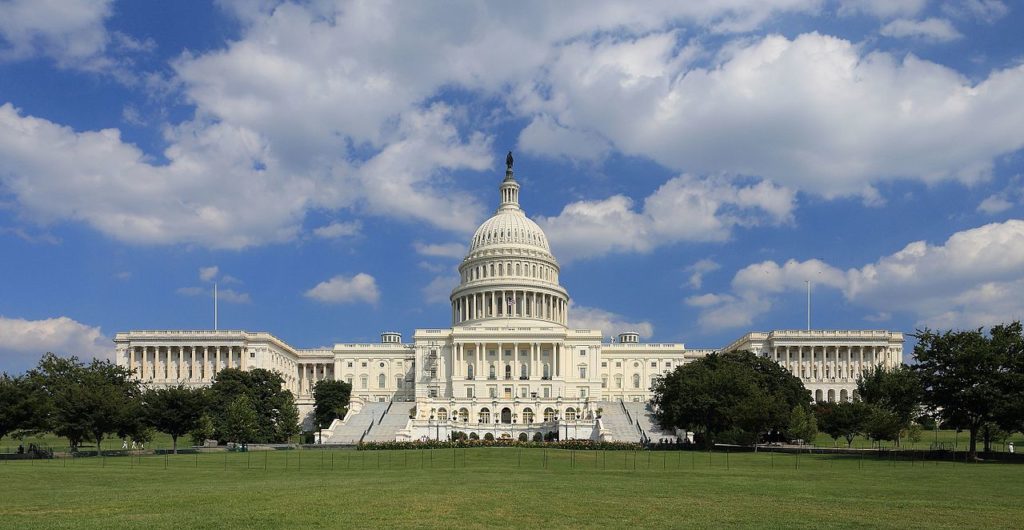New Jersey LCV and National LCV Release 2018 National Environmental Scorecard; Menendez, Booker Ranked Highest, Frelinghuysen Lowest

New Jersey LCV and National LCV Release 2018 National Environmental Scorecard
TRENTON, NJ—New Jersey League of Conservation Voters (New Jersey LCV) today released the New Jersey congressional delegation’s scores on the League of Conservation (LCV) Voters’ 2018 National Environmental Scorecard. The Scorecard is the primary yardstick for evaluating the environmental records of every member of Congress, and is available online at scorecard.lcv.org
“As the Trump administration continued its assault on our most important environmental protections, we’re more determined than ever before to hold members of Congress accountable for putting polluters ahead of our families,” said Ed Potosnak, Executive Director of New Jersey LCV. “LCV’s 2018 scorecard as it relates to New Jersey shows if you score low, you gotta go,” Potosnak quipped. “In the 2018 midterms, New Jersey voters sent a clear message to Congress—if you side with polluters and score low on environmental issues, you will be voted out. The 2018 National Environmental Scorecard demonstrated we can count on Senators Booker and Menendez, as well as Representatives Pallone, Watson Coleman, Pascrell, Payne, Sires and Norcross to consistently fight for us.”
The 2018 Scorecard measures votes cast during the second session of the 115th Congress. In New Jersey, 7 House members and both Senators earned a score of 80 percent or greater. The average House score for New Jersey was 70 percent and the average Senate score was a perfect 100 percent. The full delegation’s scores for 2018 are:
Senator Booker – 100%
Senator Menendez – 100%
Representative Norcross – 86%
Representative LoBiondo – 51%
Representative MacArthur – 23%
Representative Smith – 60%
Representative Gottheimer – 80%
Representative Pallone – 91%
Representative Lance – 60%
Representative Sires – 89%
Representative Pascrell – 91%
Representative Payne – 91%
Representative Frelinghuysen – 17%
Representative Watson Coleman – 94%
Reps. Frelinghuysen, Lance, MacArthur, and LoBiondo—four of the lowest-scoring members of the New Jersey delegation on LCV’s Scorecard—are no longer in Congress.
“Our state elected three new environmental champions and we are proud to have Reps. Kim, Malinowski, and Sherrill as a part of our new delegation,” said Potosnak. “I am confident the promises they made to New Jerseyans to protect our clean air, clean water, and open spaces will come to fruition when we reconvene next year to look back at 2019. We are especially proud that New Jersey’s 3rd congressional district elected Andy Kim, who ran against one of LCV’s Dirty Dozen candidates—Tom MacArthur. MacArthur’s appalling lifetime score of just 16% shows he consistently sides with polluters and against New Jerseyans’ health and safety.”
Congressman Pallone, the most senior member of the New Jersey Delegation, who serves in the powerful role of Chairman of the House Energy and Commerce Committee commented on the 2018 LCV Scorecard, said, “I am honored to serve with outstanding environmental leaders, new and returning, of the New Jersey congressional delegation. I am happy to put the previous Congress in the rearview mirror as the new Democratic Leadership tackles the real and urgent threat of climate change. I thank LCV for continuing its critical work of telling the public who in Congress is fighting for our environment and I look forward to significant progress,” Congressman Pallone concluded.
The 2018 National Environmental Scorecard reveals that, once again, the extreme pro-polluter Republican leadership drove their caucuses to an abysmal average score of eight percent in both chambers of Congress. In stark contrast, Senate Democrats and the Independents who caucus with them earned an average score of 95 percent, and House Democrats earned an average score of 90 percent.
“After eight years of the most anti-environmental U.S. House ever and two years of relentless attacks on the environment from the Trump administration, the tectonic shift to a pro-environment majority in the people’s House comes not a moment too soon. We could not be more excited to work with the new pro-environment House majority to protect our air, water, lands, and wildlife, combat the climate crisis, and hold the Trump administration accountable,” said LCV Senior Vice President of Government Affairs Tiernan Sittenfeld.
The 2018 Scorecard includes 35 House votes that span the chamber’s assaults on clean air and water, lands and wildlife protections, investments in clean energy and so much more. In the Senate, the majority of the 14 votes scored are confirmation votes on Trump’s anti-environmental nominees.
LCV has published a National Environmental Scorecard every Congress since 1970. The Scorecard represents the consensus of experts from about 20 respected environmental and conservation organizations who selected the key votes on which members of Congress should be scored. LCV scores votes on the most important issues of the year, including energy, climate change, public health, public lands and wildlife conservation, and spending for environmental programs. The votes included in the Scorecard presented members of Congress with a real choice and help distinguish which legislators are working for environmental protection. More information on individual votes and the Scorecard archive can be found at scorecard.lcv.org









